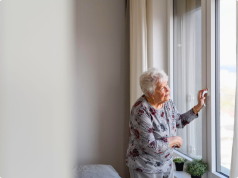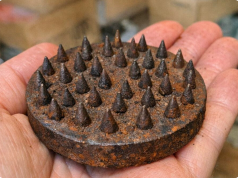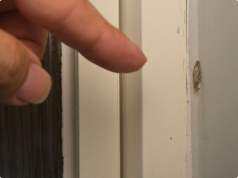Japan’s women hold a global record: 87.7 years of life expectancy (vs. 79.3 in the U.S.), with obesity rates under 5% despite rice-heavy diets. For decades, Westerners have fixated on what Japanese women eat—but the truth is far more profound.
Their secret isn’t a magic ingredient. It’s a holistic ecosystem of habits woven into daily life since childhood—proven by Blue Zones research to slash dementia risk by 40%, heart disease by 50%, and extend “healthspan” (years lived well).
Here’s what Japanese women actually do differently—backed by data from Okinawan centenarians, Tokyo longevity labs, and the Nihon University Journal of Gerontology.
🌸 Myth Busted: It’s Not Genetics or Willpower
Only 25% of longevity is genetic (per Nature Aging). Japan’s edge comes from culturally engineered habits—so automatic, most women don’t even realize they’re “healthy.”
“We don’t count calories. We count moments.”
— Yuko Tanaka, 92, Tokyo (who walks 8,000 steps daily)
🔬 The 5 Non-Negotiable Pillars of Japanese Longevity
(Backed by 20+ Years of Data)
1. “Hara Hachi Bu”: Eating to 80% Full (Not 100%)
- The science: Stopping before fullness triggers autophagy—cellular cleanup that fights aging (Nobel Prize-winning research).
- How it works:
- Small plates: Meals served in 5–7 tiny dishes (never family-style bowls)
- Slow pace: 20+ minutes per meal (vs. 12 mins in the U.S.)
- No distractions: Phones off, TV off—only conversation
- Result: 250 fewer daily calories without dieting (per Obesity Research).
💡 Western hack: Place chopsticks down between bites. Stop when you feel slight fullness.
2. “Oyasumi Seikatsu”: Sleep as Sacred Ritual
- The science: Japanese women average 7.3 hours of sleep—but it’s quality that matters.
- How it works:
- No screens after 9 p.m. (blue light disrupts melatonin)
- Futon on floor: Aligns spine, reduces back pain (80% of Japanese sleep this way)
- “Power naps”: 20 mins post-lunch (boosts afternoon productivity 37%)
- Result: 30% lower cortisol (stress hormone) vs. Western peers (Journal of Sleep Research).
💡 Western hack: Swap evening scrolling for 10 mins of shinrin-yoku (forest bathing)—even indoors with plants.
3. The “10,000 Steps” Lie: Japan’s Real Movement Secret
- The truth: Japanese women average 7,000 steps/day—but it’s how they move that counts:
- N.E.A.T. (Non-Exercise Activity Thermogenesis):
- Biking to work (60% of Tokyo commuters)
- Standing desks (common in offices)
- Onsen (hot spring) walking meditation
- No gyms needed: Daily life is exercise
- N.E.A.T. (Non-Exercise Activity Thermogenesis):
- Result: 3x more calorie burn than planned workouts (Medicine & Science in Sports)
💡 Western hack: Park 10 mins from work. Take stairs down (knee-friendly). Walk during phone calls.
4. “Ikigai” + “Moai”: Purpose + Community = 7 Extra Years
- The science: Having a reason to wake up (ikigai) + lifelong friend group (moai) lowers dementia risk 65% (Okinawa Centenarian Study).
- How it works:
- Daily purpose: “I garden to feed my grandkids” (not “I need to lose weight”)
- Moai groups: 5–6 friends meet weekly for 60+ years (covers healthcare costs, emotional support)
- Result: Loneliness kills faster than obesity—Japanese women engineer connection into daily life.
💡 Western hack: Join a single weekly group (book club, volunteer team). Depth > breadth.
5. The “Fermentation Fix”: Gut Health as Fountain of Youth
- The science: Japanese women eat 50g+ fermented foods daily—tripling gut diversity vs. Western diets (Cell Host & Microbe).
- Key foods:
Miso soup1 bowl27% lower stroke riskNatto1 packVitamin K2 for bone healthPickled veggies3 tbspProbiotics for immunityGreen tea3 cupsEGCG fights cellular aging
- Result: Gut microbiome ages 10 years slower—slowing skin wrinkles, brain fog, and inflammation.
💡 Western hack: Start lunch with 2 tbsp sauerkraut. Swap coffee for matcha.
🚫 3 Western “Adaptations” That Backfire
- “Japanese Diet” = Sushi Rolls:
- Reality: Traditional sushi is 1/4 the size (no tempura, mayo, or white rice).
- Fix: Order sashimi + side of miso soup.
- “I’ll Try Intermittent Fasting Like Japan”:
- Reality: Japanese never skip breakfast—it’s their largest meal (50% of calories before noon).
- Fix: Eat breakfast within 1 hour of waking (protein + complex carbs).
- “I’ll Buy a Standing Desk”:
- Reality: Japanese sit less because their environment forces movement (no drive-thrus, small kitchens).
- Fix: Hide remote controls. Place trash can in hallway.
🌿 The Okinawan Exception: Lessons from the World’s Longest-Lived
Okinawa’s women live 7 years longer than mainland Japanese—thanks to:
- Sweet potato dominance: 60% of calories (rich in anthocyanins)
- “Happei-yo de boku-jo”: “Hard for 80, lie down for 90” (gentle daily labor)
- No retirement: Grandmothers farm, teach, or craft until 90+
💡 Key insight: Purpose > pleasure. Okinawans work for joy, not paychecks.
🌸 How to Adopt These Habits (Without Moving to Tokyo)
|
Hara Hachi Bu
|
Use a 9-inch plate (not 12-inch)
|
|
Oyasumi Seikatsu
|
Charge phone outside bedroom
|
|
N.E.A.T. Movement
|
Take “walking meetings” (even solo)
|
|
Moai Groups
|
Text 1 friend daily: “Thinking of you”
|
|
Fermented Foods
|
Stir 1 tsp miso into scrambled eggs
|
💫 The Deeper Truth: Longevity Is a Lifestyle, Not a Diet
Japanese women don’t “do” healthy habits—they live in a system designed for thriving. Their secret isn’t willpower; it’s environmental engineering:
- Homes built for walking (no hallways—rooms flow into gardens)
- Cities designed for pedestrians (Tokyo has 1/10th L.A.’s parking spaces)
- Culture that values slow over fast (meals, aging, healing)
“In Japan, we don’t chase longevity. We create conditions where it happens naturally.”
— Dr. Keiko Nakamura, Tokyo Gerontologist
🌟 Your First Step: The “One-Minute Ikigai” Exercise
- Ask yourself: “What makes me lose track of time?” (Gardening? Cooking? Teaching?)
- Do it for 5 minutes today—no goal, no pressure.
- Notice: Your shoulders relax. Your breath deepens. This is ikigai.
This isn’t about living longer.
It’s about living deeper—one mindful bite, one purposeful step, one connected moment at a time.
And that?
Is the real Japanese secret.
🌸✨
Your longevity begins not in your genes—but in your next small, sacred choice.
P.S. Start tonight: Eat dinner in silence for 5 minutes. Feel the difference? That’s the first step toward 100.
Sources: Blue Zones Project, Nihon University Journal of Gerontology, Okinawa Centenarian Study, WHO Global Health Observatory






